- Home
- Heather Graham
Knight Triumphant Page 6
Knight Triumphant Read online
Page 6
Father MacKinley looked at her a moment and then smiled slowly. “No, you cannot go with Sir Robert, for precisely those reasons. And you mustn’t fear for him. Sir Robert has already been taken south. He and his squire slipped out this morning through the tunnel at the end of the crypt.”
Igrainia gasped. “I wasn’t even informed!”
“I thought it best to make his escape at the first moment I could, and not because I didn’t trust your judgment or want your counsel. The opportunity arose this morning and I had to take it. The outlaw Scots were busy in the courtyard, except for the man guarding Eric Graham and the door to the master’s chamber. No one knows that he has gone, as yet. And we must get you away in the same fashion. We cannot have the gates open, the drawbridge dropped. Soon, as soon as you can make a hasty preparation. You will go as a poor woman, seeking peace and prayer on a pilgrimage to shrines in the south. I beg of you, Igrainia. I have prayed on this matter myself. The rest of the people here will fare well. You might be of value to the Scots, and therefore, a value for them to keep in jeopardy. I have honestly pondered this long and hard as I prayed. I know that you must go. And I hope that God has given me his wisdom.”
In the first days when the fever broke, Eric was too weak to do more than lie in his bed, and listen.
He listened carefully.
Though his limbs seemed worn and painful, it was the pain of knowing all that he had lost which was the worst. His child, his wife. There were times when it did not seem worth the effort to live, to gain strength again.
But with the death of love came the birth of an idea, a fierce preoccupation. He would regain his strength and rise from the bed, for a long fight remained ahead. He would rise, because he would win.
Before they could realize that he had regained his strength, he would do so. He knew that many of his men had failed to fall to the disease because they came to the sickroom; indeed one of his own followers was in a chair at all times. The priest came and went. Women from the castle served him, but they were watched. He knew the one voice that whispered often with the others; the voice of the servant who had said they must let him die. He was grateful that he rode with so many who were wary, and careful, lest his enemies slip poison into the brews they gave him to bring him back to strength.
He knew so much, because he lay there carefully, eyes closed.
And listened.
He had lain abed more than two weeks. Margot had died the day he had fallen.
Sir Robert Neville, stricken kin of the late lord of Langley, had been spirited away by the priest who was not afraid.
And the lady of Langley was gone as well.
He understood the mind of the young priest, and he admired him, as he admired the fact that the man himself did not run. He wondered if he had been saved because of the man’s reverence to God, or because his men remained in the castle and might slaughter everyone if he were to die, and they were left without direction. He thought, though, that the priest had judged them, and knew that they would not wantonly kill.
Then, again, there was the fact that Langley had long stood as a bastion in the borderlands, and loyalties here had wavered frequently. The late lord had been a product of both England and Scotland. His mother had been Celtic to the core, and in the past, it had been as if Langley stood apart. The great gates and drawbridge had been lowered at the command of those serving the king, but Pembroke’s army had not been far away, and if the wrath of that army had been turned from the pursuit of Robert Bruce to the total subjugation of Langley, the castle and its people would have most likely suffered a bitter defeat. Sad though it might be, the people in the lowlands had good reason to bow before Edward of England before bending a knee to Robert Bruce.
He lay in the master chamber, in the same bed where Margot had lain. And often, the pain of her loss and his innocent sweet child Aileen lay on his heart so heavily that not even his anger, grief and hatred could stir him. But there were moments when he was alone in the room, and remembered his vow to himself that he would live. And in those moments, he began to move. To work his muscles. The priest sometimes came to watch over him, but he had passed the stage of death, and there were those who needed the priest’s ministrations so much more. His men, he knew, guarded the door, and came in with the maidservants when they tended to him. But as the days passed, he began to have hours alone, and in those hours, he began to work his weakened muscles. His hands first, because in the days following the worst of the fevers and the nightmares and the dreams and illusions, not even his fingers wanted to bend at the command of his mind. Bit by bit, he struggled to create a grip, then to raise his arms, to sit up, and then to stand, and finally to walk. He forced himself to eat, for he knew that he had to do so, and he knew, as well, that his own people watched over the kitchen. He kept to the bed until he had gained a certain sense of power, then he rose, and called to Peter MacDonald to help him; he needed water, a long bath in hot, soothing water. In all the days when he had tossed and turned, he had known that he still bore remnants of the blood and mud of battle, and the sweat of sickness. He was eager to feel clean again.
As he bathed, he listened gravely to Peter, who was at a loss to know how either Robert Neville, who had been abed, scarcely able to move, and the lady—well enough, but certainly within the gates at all times—had managed to leave.
“None will speak,” Peter told him.
Eric nodded.
“There is obviously a way out through the castle. And, therefore, a way in. I will discover what it is.”
“But have you the strength to force out of them what you need to know?” Peter asked him. He wasn’t an old man, but his features were weathered, lined and creased. Like Eric, he was a natural sailor, brought to shore, and a learned warrior.
There had been no other choice for them.
“Today, I will let them know that this castle will be kept in the name of the Bruce. And that we will discover their secrets. But soon, very soon . . .”
“Soon . . . ?”
“We will begin to even the score in this deadly tournament,” Eric said softly.
When he was done bathing, he donned a linen chemise and breeches belonging to the past master of the castle, found his boots, and made his way down the stairs. He drew out a chair at the head of the great long table in the hall, lifted a booted foot upon the table, startling the poor old steward of the castle into something like apoplexy.
“Yes, I am alive and well,” Eric said. “And very hungry for good bread and meat. Are there such luxuries to be had?”
The old fellow nodded dumbly and started to turn.
“Wait. What is your name?”
“Garth, my lord.”
“Well, Garth, it is good to see you moving, in far better circumstance than that in which we found you here.”
“And you, sir, have apparently weathered the illness as well.”
“I have. Most regretfully, I’m certain, to your number.”
The old man shrugged. “It has made little difference here. Kings and nobles make war. Men such as I merely serve until we die.”
“Not true, Garth. The common man of Scotland is the soldier who will make her free.”
“The common man of Scotland is the one who dies, butchered by the armies, starved out by either side.”
“Langley stood unaffected for many years.”
“Langley could only fall from within.”
Eric arched a brow without replying for a moment. Aye, it was true. Without huge war machines and a massive army moving against it, this castle could not fall.
Except from within. And if there was a way for men and women to escape the walls, there was a way for traitors to slip inside as well.
“God’s judgment,” Eric said after a moment to Garth. “Had we not been imprisoned for the purposes of torture and demise, this death would not have come to Langley. Some might call that God’s judgment.”
“And some,” came a voice from the doorway, “might call it t
he idiocy of a few stupid men with enough arms to force their way.”
Eric grinned, seeing the priest at the entry to the great hall. “Welcome, Father MacKinley. I was about to send for you.”
“You’re looking extremely well.”
“Yes. The sickness is gone.”
“Is it?” the priest asked. “I have a feeling that an illness far worse festers within your soul.”
“My soul is of little interest to me at the moment, if you will forgive me, Father.”
“Whether I forgive you or not—”
“Let’s not get into a philosophical discussion, Father, on my soul. There are other matters to be discussed. First, Garth, I am very hungry.”
“Aye, sir.”
He turned to leave.
“Garth.”
The man paused, looking back. He was wary, but also worn.
“I have no real liking for bloodshed and death. But if I—or any of my men—are poisoned here, the retaliation upon those here will be swift and any who die at your hands will wish that they had been taken by the plague. You understand that.”
“Aye, my lord. That was made quite clear at the beginning of your illness by your man, MacDonald.”
Eric smiled. Thank God for Peter MacDonald. His right hand. Because of Peter, and this priest, he had lived. When he should have died. When he would have gladly died. He dared not think too long on that fact. Dark clouds seemed to fog his vision when he did so, and the dull pain would begin to thud again, and he wanted to rage, and tear the place apart stone by stone, though nothing would bring back Margot and his daughter.
“Good. Bring food. Father MacKinley, sit.”
Garth left the hall, hurrying to bring food as bidden. As bidden, Father MacKinley sat, his eyes wary.
“So, Father, tell me about the state of affairs.”
“The state of affairs?” MacKinley said. “War, I believe. It has been war here, as long as I remember.”
“Ah, yes, it’s a way of life, isn’t it? Here, Father, you know exactly what I am asking you.”
“I’m sure that you know everything that is going on, and that your man, MacDonald, has brought you up to date.”
“Yes, but I would like to hear your assessment of the current situation at the castle.”
“People have stopped dying. Most of the poor deceased have been burned in great heaps just beyond the walls.”
“Most of the dead.”
“Your wife and child are buried in the wall with the late Lord Afton.”
Eric stared down at his hands for a moment. “There will be masses said,” he murmured quietly.
“There have been masses said. All men are equal before God.”
Eric allowed his mouth to curl just slightly. MacKinley was either a fool or a very brave man.
“Where is your mistress?”
MacKinley stiffened at Eric’s evenly voiced question.
“Gone.”’
“That’s evident. Gone where?”
“Back to her brother.”
“The young widow, returned to England to be a pawn in another advantageous marriage.”
“Gone back to the love and care of her family.”
“When did she leave?”
“I don’t remember—”
“When?”
“Several days ago.”
“How many?”
“Perhaps five . . . or six.”
“Ah. So she cannot have gotten far.”
“She has been gone many days. It would be folly to pursue her.”
“But she has gone on foot.”
The priest frowned, and Eric knew he was right.
“How—”
“She departed through a secret tunnel, certainly, or my men would have known. So, at the least, she started out by foot. I think I will be able to find her.”
“She was not responsible for the death here. She saved your life.”
“I survived. She is not capable of saving lives. My wife is dead.”
“She is not a magician.”
“She has the reputation of a healer.”
“But no man can work miracles.”
“I repeat, my wife is dead. And my babe. A child as innocent of evil as any soul could be.”
“But what matters here—”
“Nothing else matters. My wife and child are dead.”
“But you have survived,” MacKinley said, leaning forward in sudden passion. “God willed that you should survive, and so you should be on your knees in gratitude, and let go the innocent woman who aided you in that survival. Thank God, and embrace life, and the world will again begin to hold substance, there will be a reason to live, you will find a reason to live—”
“Father, you needn’t speak so passionately, as if I were a lost member of your flock,” Eric said dryly. “There is a reason to live. Scotland.”
“A man must have more to live for, sir, than bloodshed and battle. You have lost much, but gained much. You hold this castle, and your man, Bruce, is king. Therefore—”
“Oh, he is king. But he does not hold Scotland. Where was the lady going?”
MacKinley frowned “I haven’t lied to you in any way. I have told you; Lady Igrainia is on her way to her brother, the young earl.”
“But there was no party to escort her; I have been abed and ill a long time, but I am aware of what goes on here. My small party of men hold the workings of the castle. Some of the poor men drawn to arms in the name of Edward of England have readily changed sides. They might as readily change back, but . . . not while we hold the power. Few of the workers and craftsmen who have survived care much who holds the castle, as long as they may live and work and continue surviving. Anyone loyal to the king of England languishes in the dungeons below where the rot of death must still permeate the stone. There was no way for you to provide an escort for the lady of the castle. Therefore, she is traveling alone, or with a maid or manservant, no more. And even on the border of England, she wouldn’t dare let her true identity be known. She would be far too rich a prey for even a loyal English outlaw to overlook. So . . . She has donned some poor woolen cloak, and gone out on the road as a poor pilgrim. Am I correct?”
MacKinley didn’t need to answer. His cheeks were flushed.
“You must leave her be. She is not guilty of any harm.”
Eric felt a rising fury within him. “She was the wife of Afton of Langley. Langley played host to the king’s men sent to murder Scottish nationalists and imprison, humiliate and torment their wives. She is as guilty as original sin, Father.”
“You’re wrong. You must not harm her . . . you must not . . .”
Eric cast the priest a look of total disdain. “I have no interest in your lady witch, priest. But she has a value to the cause of Scotland. You know what has befallen certain noblewomen of our country, Father. Word has gone out faster than the wind.”
Garth came into the room carrying a large tray. A fresh haunch of venison lay on the tray with a loaf of bread and a ewer of ale.
Eric watched Garth as he delivered the food. “Garth of Langley, you’ve long been in service here. Sit and join us.”
“There is no poison in the meat,” Father MacKinley said. “We did not save your life to end it with poison.”
“Nevertheless, you will both oblige me by dining first.”
Father MacKinley kept his eyes full upon Eric’s as he knifed a large section from the meat and chewed it down, then broke off bread, and did the same. Eric brought his gaze upon Garth, who also took meat and bread.
“The ale,” Eric suggested.
Both men drank.
Eric then set upon the meal, suddenly ravenous, yet aware that he had to take care with meat so rich when he had been ill so long. It was hard not to wolf down every last bite. When he had finished, he realized both men were still watching him in silence.
He sat back. “You are both free to leave the castle, if you wish.”
Neither man replied.
“Did you hear me? You are free to travel south, to safer ground.”
“Where would I go?” Garth asked him. “I have worked here all my life.”
“These people are my . . . they are my flock,” MacKinley said. “And I would keep the peace between them, and you.”
“You must keep the peace between them—and Peter MacDonald.”
“You’re leaving?”
“Aye.”
“Joining the Bruce to fight on?” The priest said hopefully.
“You know that I am not. Aye, I’m leaving, but I won’t be joining the Bruce—not just yet. I was sent out to solicit men for his battles, and thus was at sea where we found the man who inflicted us all with this rampaging disease. I meant to return to the king with more men at arms. And we will soon have help from many Irish chieftains. But for ourselves. . . now . . . we’ve lost so many. But, still, I believe that I will bring Robert Bruce a political and powerful prize, nevertheless.”
“You don’t mean . . .”
“The Lady of Langley? The very wealthy daughter of the late Earl of Wheaten? Aye, she is the exact prize I do mean.”
“You will give her over—to Robert Bruce?”
“Indeed.”
“But—but—she is long gone. You will never find her.”
Eric rose and came to the priest, staring down at him. “Oh, but I will. You have told me that I will find something to live for. I have found it, Father. I am living for two things, and two things only. Scotland—and revenge. Trust me, Father, I never lie. I intend to find her. And I will.”
“But . . . then . . .”
“Then the lady will pay the price of war,” he said simply.
He left the great hall then with long strides.
He made his way up the staircase as if he were in complete power and control. Peter waited at the door to the master’s chamber. He opened it quickly.
He managed to enter the chamber before he sagged. Peter helped him to the bed. He gripped Peter’s shoulders tightly.
“They can’t know that I haven’t my full strength.”
“They will not,” Peter assured him. “But I should go after the lady of Langley. You haven’t the strength yet—”
“Your strength is needed here, Peter. The castle is not secure, and it must be held against the English.”

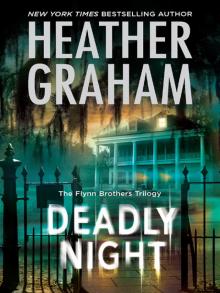 Deadly Night
Deadly Night The Uninvited
The Uninvited Dust to Dust
Dust to Dust Heart of Evil
Heart of Evil A Perfect Obsession
A Perfect Obsession The Keepers
The Keepers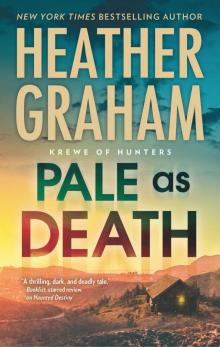 Pale as Death
Pale as Death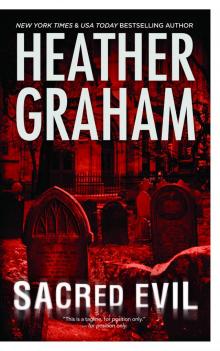 Phantom Evil
Phantom Evil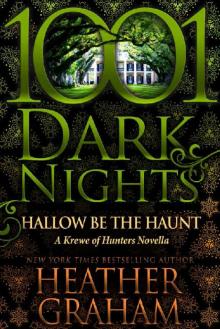 Hallow Be the Haunt
Hallow Be the Haunt Night of the Wolves
Night of the Wolves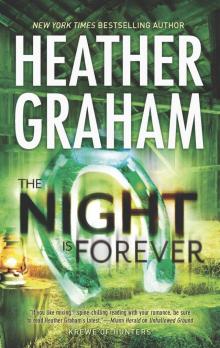 The Night Is Forever
The Night Is Forever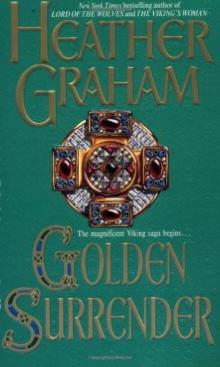 Golden Surrender
Golden Surrender Kiss of Darkness
Kiss of Darkness Beneath a Blood Red Moon
Beneath a Blood Red Moon A Dangerous Game
A Dangerous Game Ghost Shadow
Ghost Shadow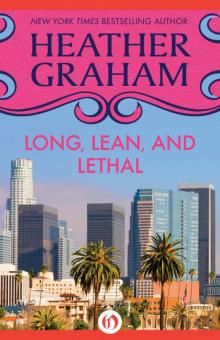 Long, Lean, and Lethal
Long, Lean, and Lethal Fade to Black
Fade to Black The Rising
The Rising And One Wore Gray
And One Wore Gray Rebel
Rebel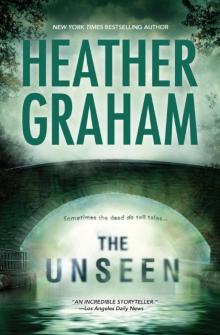 The Unseen
The Unseen The Night Is Watching
The Night Is Watching The Evil Inside
The Evil Inside The Unspoken
The Unspoken The Night Is Alive
The Night Is Alive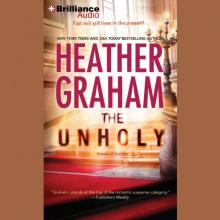 The Unholy
The Unholy Nightwalker
Nightwalker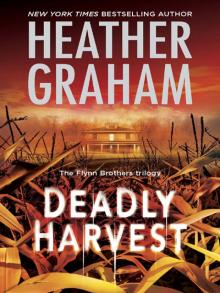 Deadly Harvest
Deadly Harvest An Angel for Christmas
An Angel for Christmas A Pirate's Pleasure
A Pirate's Pleasure American Drifter
American Drifter Realm of Shadows
Realm of Shadows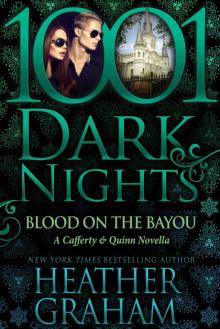 Blood on the Bayou
Blood on the Bayou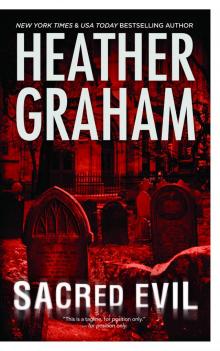 Sacred Evil
Sacred Evil Dying to Have Her
Dying to Have Her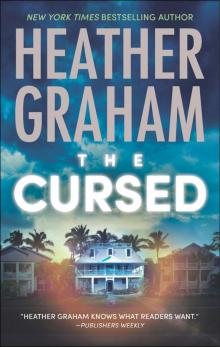 The Cursed
The Cursed Captive
Captive Hurricane Bay
Hurricane Bay Drop Dead Gorgeous
Drop Dead Gorgeous Ghost Memories
Ghost Memories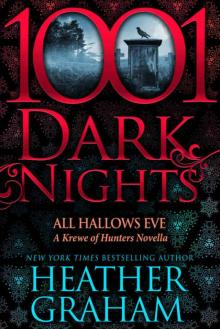 All Hallows Eve
All Hallows Eve Dying Breath
Dying Breath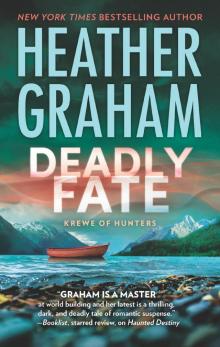 Deadly Fate
Deadly Fate The Dead Room
The Dead Room Lord of the Wolves
Lord of the Wolves Ghost Night
Ghost Night Ghost Walk
Ghost Walk The Forgotten
The Forgotten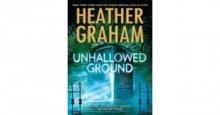 Unhallowed Ground
Unhallowed Ground One Wore Blue
One Wore Blue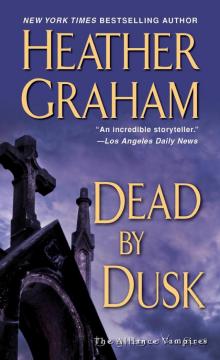 Dead By Dusk
Dead By Dusk Night of the Blackbird
Night of the Blackbird The Dead Play On
The Dead Play On Bride of the Night
Bride of the Night Wicked Deeds
Wicked Deeds The Forbidden
The Forbidden Triumph
Triumph Out of the Darkness
Out of the Darkness Love Not a Rebel
Love Not a Rebel The Last Noel
The Last Noel Tall, Dark, and Deadly
Tall, Dark, and Deadly The Death Dealer
The Death Dealer Dead on the Dance Floor
Dead on the Dance Floor Law and Disorder
Law and Disorder Dark Rites
Dark Rites New Year's Eve
New Year's Eve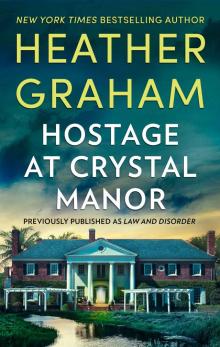 Hostage At Crystal Manor
Hostage At Crystal Manor And One Rode West
And One Rode West Home in Time for Christmas
Home in Time for Christmas Killing Kelly
Killing Kelly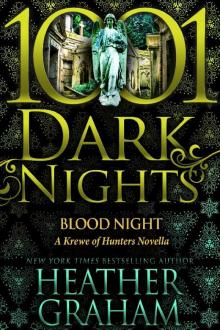 Blood Night
Blood Night Tangled Threat (Mills & Boon Heroes)
Tangled Threat (Mills & Boon Heroes)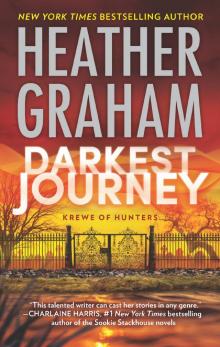 Darkest Journey
Darkest Journey Glory
Glory Deadly Touch
Deadly Touch An Unexpected Guest
An Unexpected Guest Night of the Vampires
Night of the Vampires Seize the Wind
Seize the Wind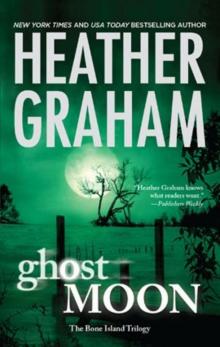 Ghost Moon
Ghost Moon The Vision
The Vision Dreaming Death
Dreaming Death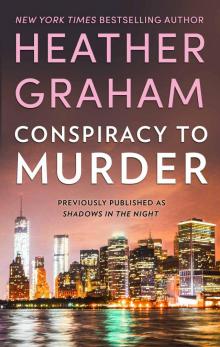 Conspiracy to Murder
Conspiracy to Murder Horror-Ween (Krewe of Hunters)
Horror-Ween (Krewe of Hunters)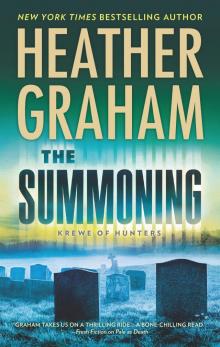 The Summoning
The Summoning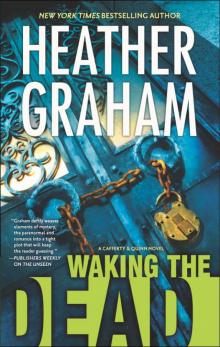 Waking the Dead
Waking the Dead Danger in Numbers
Danger in Numbers The Hidden
The Hidden Sweet Savage Eden
Sweet Savage Eden Tangled Threat ; Suspicious
Tangled Threat ; Suspicious Mother's Day, the Krewe, and a Really Big Dog
Mother's Day, the Krewe, and a Really Big Dog Picture Me Dead
Picture Me Dead The Killing Edge
The Killing Edge St. Patrick's Day
St. Patrick's Day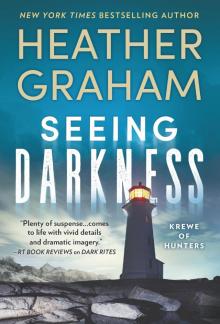 Seeing Darkness
Seeing Darkness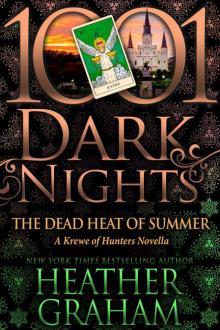 The Dead Heat of Summer: A Krewe of Hunters Novella
The Dead Heat of Summer: A Krewe of Hunters Novella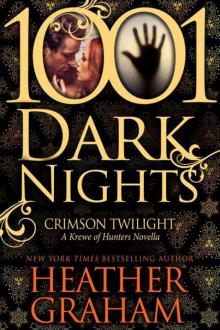 Crimson Twilight
Crimson Twilight Haunted Destiny
Haunted Destiny Devil's Mistress
Devil's Mistress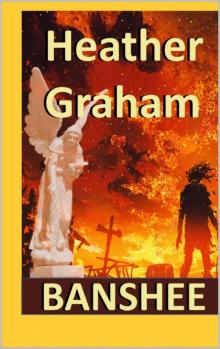 Banshee
Banshee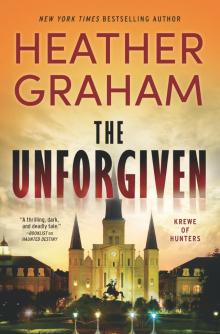 The Unforgiven
The Unforgiven The Final Deception
The Final Deception A Horribly Haunted Halloween
A Horribly Haunted Halloween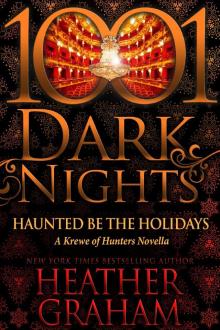 Haunted Be the Holidays
Haunted Be the Holidays Deadly Gift
Deadly Gift Easter, the Krewe and Another Large White Rabbit
Easter, the Krewe and Another Large White Rabbit Haunted
Haunted The Silenced
The Silenced Let the Dead Sleep
Let the Dead Sleep Christmas, the Krewe, and Kenneth
Christmas, the Krewe, and Kenneth Big Easy Evil
Big Easy Evil Sinister Intentions & Confiscated Conception
Sinister Intentions & Confiscated Conception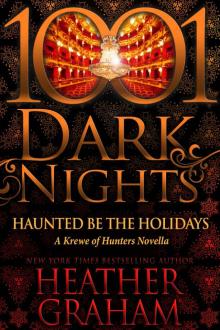 Haunted Be the Holidays: A Krewe of Hunters Novella
Haunted Be the Holidays: A Krewe of Hunters Novella Blood Red
Blood Red A Perilous Eden
A Perilous Eden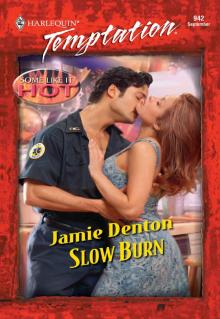 Slow Burn
Slow Burn Strangers In Paradise
Strangers In Paradise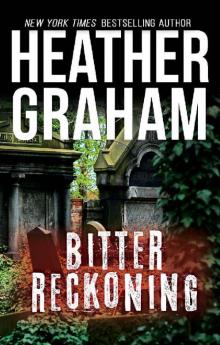 Bitter Reckoning
Bitter Reckoning Krewe of Hunters, Volume 1: Phantom Evil ; Heart of Evil ; Sacred Evil ; The Evil Inside
Krewe of Hunters, Volume 1: Phantom Evil ; Heart of Evil ; Sacred Evil ; The Evil Inside Do You Fear What I Fear?
Do You Fear What I Fear? The Face in the Window
The Face in the Window Krewe of Hunters, Volume 3: The Night Is WatchingThe Night Is AliveThe Night Is Forever
Krewe of Hunters, Volume 3: The Night Is WatchingThe Night Is AliveThe Night Is Forever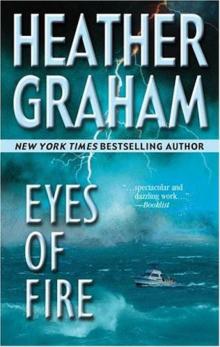 Eyes of Fire
Eyes of Fire Apache Summer sb-3
Apache Summer sb-3 Sensuous Angel
Sensuous Angel In the Dark
In the Dark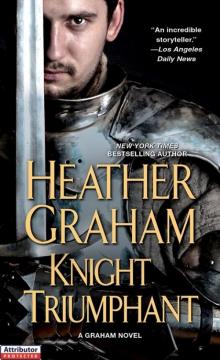 Knight Triumphant
Knight Triumphant Hours to Cherish
Hours to Cherish Tender Deception
Tender Deception Keeper of the Dawn tkl-4
Keeper of the Dawn tkl-4 Apache Summer
Apache Summer Between Roc and a Hard Place
Between Roc and a Hard Place Echoes of Evil
Echoes of Evil The Game of Love
The Game of Love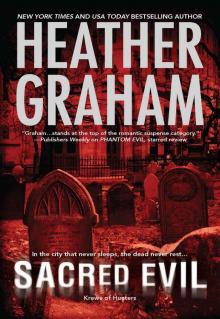 Sacred Evil (Krewe of Hunters)
Sacred Evil (Krewe of Hunters) Bougainvillea
Bougainvillea Tender Taming
Tender Taming Keeper of the Night (The Keepers: L.A.)
Keeper of the Night (The Keepers: L.A.) Lonesome Rider and Wilde Imaginings
Lonesome Rider and Wilde Imaginings Lucia in Love
Lucia in Love The Gatekeeper
The Gatekeeper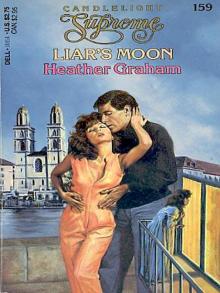 Liar's Moon
Liar's Moon Dark Rites--A Paranormal Romance Novel
Dark Rites--A Paranormal Romance Novel A Season for Love
A Season for Love Krewe of Hunters, Volume 6: Haunted Destiny ; Deadly Fate ; Darkest Journey
Krewe of Hunters, Volume 6: Haunted Destiny ; Deadly Fate ; Darkest Journey Keeper of the Dawn (The Keepers: L.A.)
Keeper of the Dawn (The Keepers: L.A.)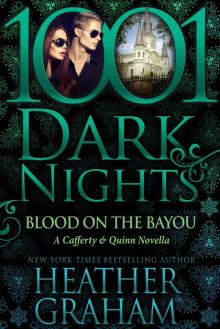 Blood on the Bayou: A Cafferty & Quinn Novella
Blood on the Bayou: A Cafferty & Quinn Novella Double Entendre
Double Entendre A Perfect Obsession--A Novel of Romantic Suspense
A Perfect Obsession--A Novel of Romantic Suspense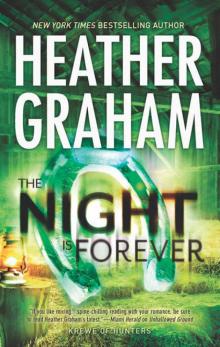 The Night Is Forever koh-11
The Night Is Forever koh-11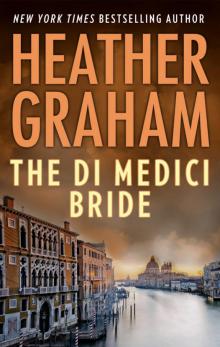 The Di Medici Bride
The Di Medici Bride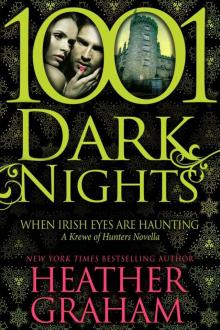 When Irish Eyes Are Haunting: A Krewe of Hunters Novella
When Irish Eyes Are Haunting: A Krewe of Hunters Novella The Keepers: Christmas in Salem: Do You Fear What I Fear?The Fright Before ChristmasUnholy NightStalking in a Winter Wonderland (Harlequin Nocturne)
The Keepers: Christmas in Salem: Do You Fear What I Fear?The Fright Before ChristmasUnholy NightStalking in a Winter Wonderland (Harlequin Nocturne) Never Fear
Never Fear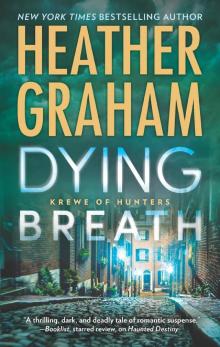 Dying Breath--A Heart-Stopping Novel of Paranormal Romantic Suspense
Dying Breath--A Heart-Stopping Novel of Paranormal Romantic Suspense If Looks Could Kill
If Looks Could Kill This Rough Magic
This Rough Magic Heather Graham's Christmas Treasures
Heather Graham's Christmas Treasures Hatfield and McCoy
Hatfield and McCoy The Trouble with Andrew
The Trouble with Andrew Never Fear - The Tarot: Do You Really Want To Know?
Never Fear - The Tarot: Do You Really Want To Know?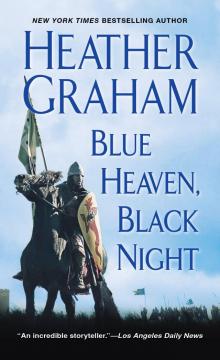 Blue Heaven, Black Night
Blue Heaven, Black Night Forbidden Fire
Forbidden Fire Come the Morning
Come the Morning Dark Stranger sb-4
Dark Stranger sb-4 Lie Down in Roses
Lie Down in Roses Red Midnight
Red Midnight Krewe of Hunters Series, Volume 5
Krewe of Hunters Series, Volume 5 Night, Sea, And Stars
Night, Sea, And Stars Snowfire
Snowfire Quiet Walks the Tiger
Quiet Walks the Tiger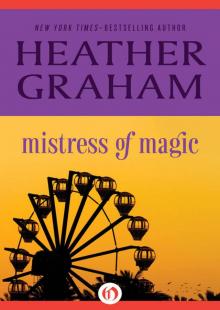 Mistress of Magic
Mistress of Magic For All of Her Life
For All of Her Life Runaway
Runaway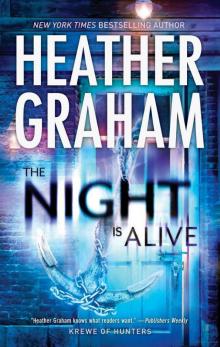 The Night Is Alive koh-10
The Night Is Alive koh-10 The Evil Inside (Krewe of Hunters)
The Evil Inside (Krewe of Hunters)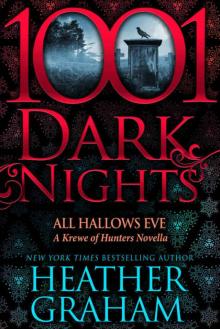 All Hallows Eve: A Krewe of Hunters Novella (1001 Dark Nights)
All Hallows Eve: A Krewe of Hunters Novella (1001 Dark Nights) Tomorrow the Glory
Tomorrow the Glory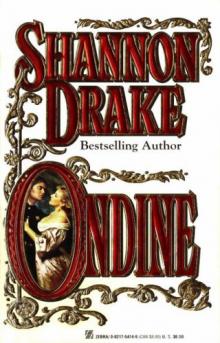 Ondine
Ondine Angel of Mercy & Standoff at Mustang Ridge
Angel of Mercy & Standoff at Mustang Ridge Bride of the Tiger
Bride of the Tiger When Next We Love
When Next We Love Heather Graham Krewe of Hunters Series, Volume 4
Heather Graham Krewe of Hunters Series, Volume 4 A Season of Miracles
A Season of Miracles Realm of Shadows (Vampire Alliance)
Realm of Shadows (Vampire Alliance) When We Touch
When We Touch Serena's Magic
Serena's Magic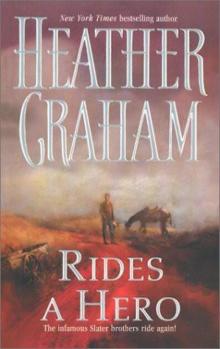 Rides a Hero sb-2
Rides a Hero sb-2 All in the Family
All in the Family Handful of Dreams
Handful of Dreams A Stranger in the Hamptons
A Stranger in the Hamptons Krewe of Hunters, Volume 2: The Unseen ; The Unholy ; The Unspoken ; The Uninvited
Krewe of Hunters, Volume 2: The Unseen ; The Unholy ; The Unspoken ; The Uninvited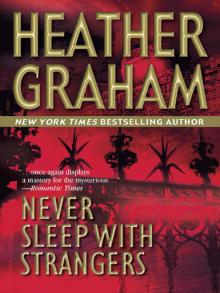 Never Sleep With Strangers
Never Sleep With Strangers Eden's Spell
Eden's Spell A Magical Christmas
A Magical Christmas Forever My Love
Forever My Love King of the Castle
King of the Castle Night Moves (60th Anniversary)
Night Moves (60th Anniversary) The Island
The Island Borrowed Angel
Borrowed Angel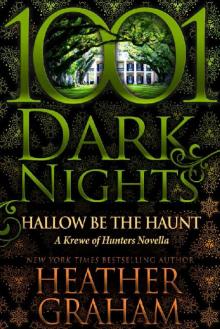 Hallow Be the Haunt: A Krewe of Hunters Novella
Hallow Be the Haunt: A Krewe of Hunters Novella Why I Love New Orleans
Why I Love New Orleans The Last Cavalier
The Last Cavalier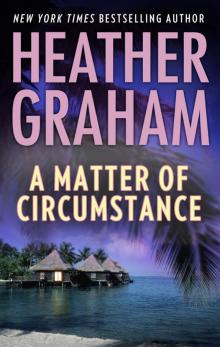 A Matter of Circumstance
A Matter of Circumstance Heather Graham's Haunted Treasures
Heather Graham's Haunted Treasures Tempestuous Eden
Tempestuous Eden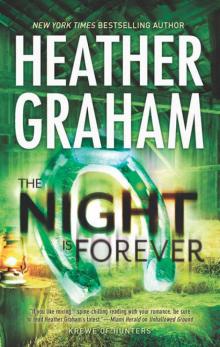 Krewe 11 - The Night Is Forever
Krewe 11 - The Night Is Forever